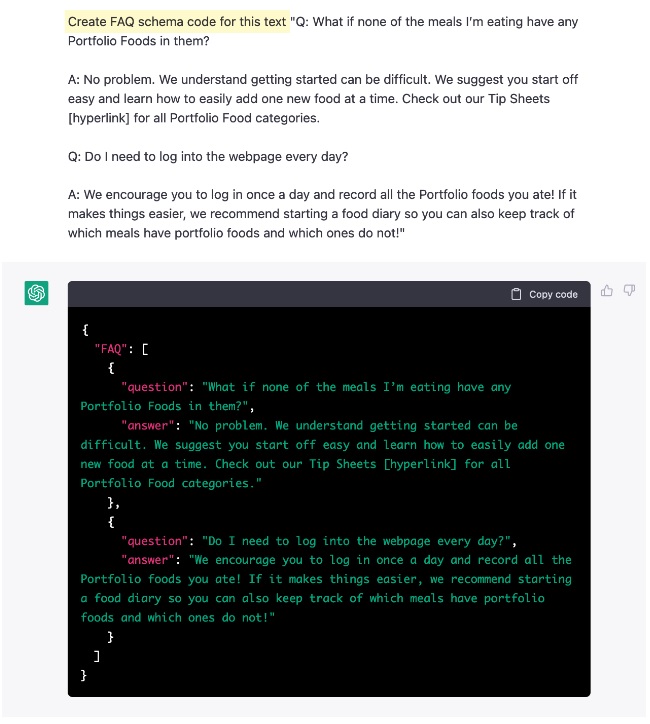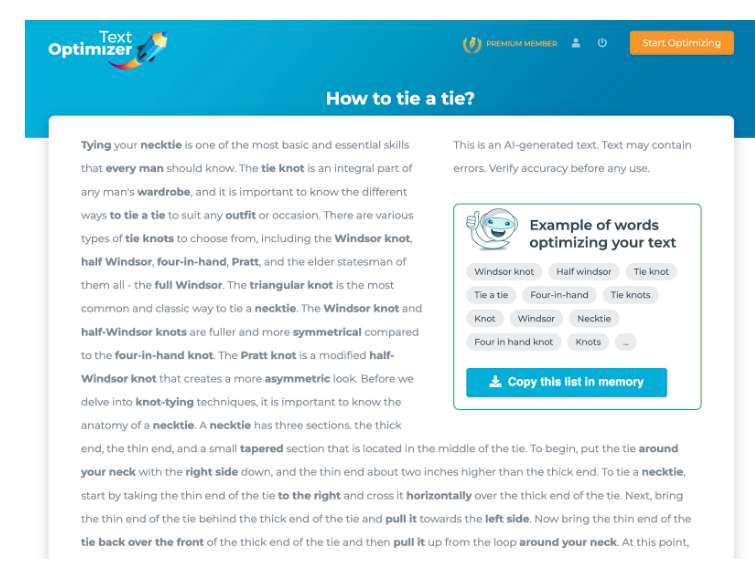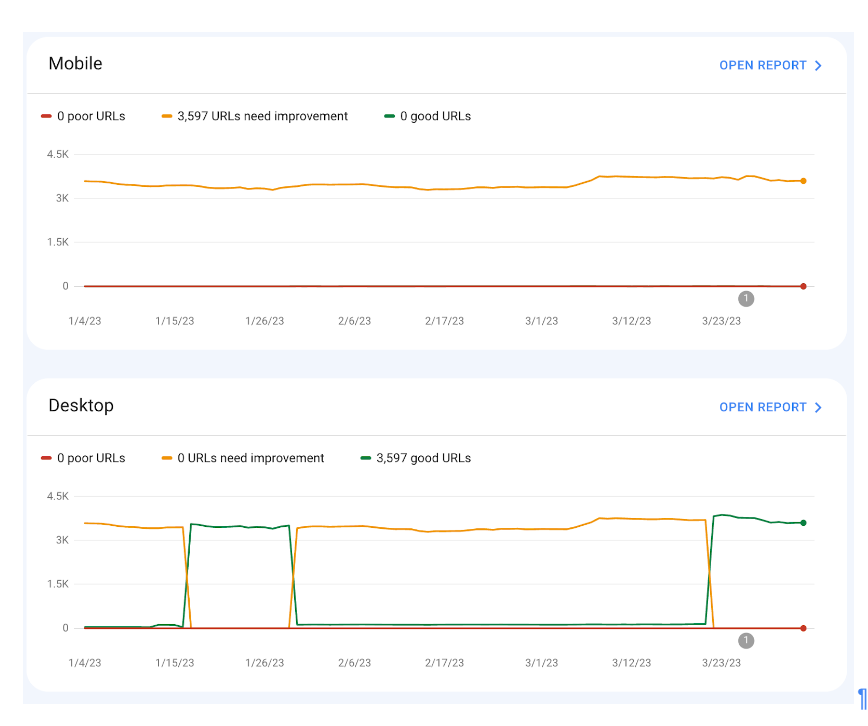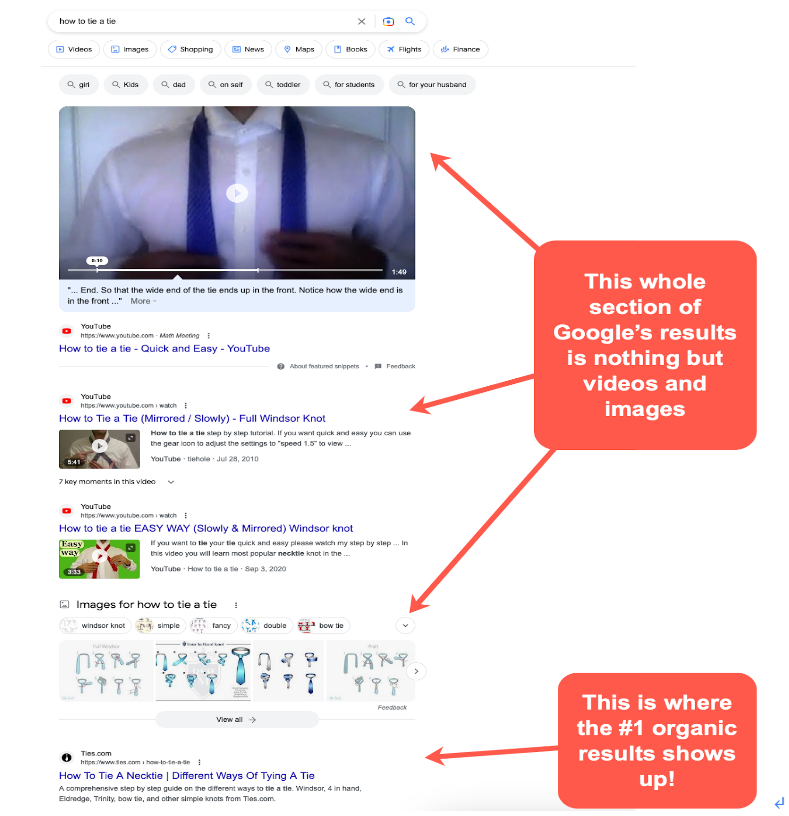It’s no secret that search engine optimization is constantly evolving, so it can be tough to keep up with new tactics and strategies that do after all move the needle and help your site survive all the multiple algorithm updates.
If you want your SEO strategy to succeed, however, this is unfortunately one of the most important things to consider about your strategy. Innovating your SEO strategy and anticipating what’s to come is part of what will set you above your competition.
If you have still been scrambling to try and perfect the already-existing aspects of your SEO strategy, don’t sweat it.
Many of the trends this year are easy to understand and implement.
1. Start using AI or fall behind
Artificial Intelligence is entering SEO at a fast pace. If you don’t use it, you will fall behind your competitors who will.
Artificial Intelligence is nothing new in the SEO world, but the launch of free or cheap AI tools (like ChatGPT) that can produce optimized content at scale has resulted in lots of discussions as to what can or cannot be done using AI.
Don’t use AI to generate content as it can be detected. But utilize AI to make your SEO more efficient and predictable. Use AI to create schema code, organize your content structure and proofread your articles, classify keyword lists by intent, etc.

2. Semantic search hits a high point
Semantic search is a way that Google is trying to interpret the meaning of search queries as opposed to just looking at keywords and matching them to web documents.
In other words, they look at the context around different keywords as well as related terms that tend to go along with different search queries.
Now that Google is looking at content this way, it’s important you optimize your content with semantics in mind. This actually makes keyword research even more important because you should be focusing on synonyms and conversation phrases that people might actually type into the search box.
Both Ahrefs and Semrush can be used to research keywords but Text Optimizer is by far the best choice there. The tool searches for your target query grabs all the search snippets (i.e. parts of web document Google found the most relevant to the query) and uses semantic analysis to generate related concepts, entities, and questions.
Text Optimizer also offers a very solid AI integration allowing you to generate semantically optimized text using AI:

If you are not using semantic analysis in your content optimization strategy, you are at least 5 years behind the algorithm!
3. Mobile SEO keeps growing
Ever since Google rolled out a mobile algorithm change, having a mobile-friendly website is as important as optimizing your content.
Keep testing your site’s mobile user experience: Check all the forms and buttons, and remove everything that slows down or clutters pages.

Make sure you keep checking your Search Console to be alerted of any mobile usability errors and issues. And get them fixed promptly!
4. Earned links and link building should focus more on brand mentions
This also means that building authoritative relationships is more important than winning a single link. It’s all about quality over quantity of links. You have to actually earn your links and get natural brand mentions as opposed to using keyword-rich anchor text or plugging links into articles for SEO purposes only.
Find niche influencers and engage with authoritative websites to try and establish a connection. The more connections and relationships you have, the more natural links you should earn.
5. ROI metrics > keyword rankings
Rankings are becoming more and more dynamic. They fluctuate on a daily basis. And let’s not forget about all the new SERP features that keep popping up in search impacting your click-through.
And how about personalized search results? It is becoming very hard to be sure what your customers are seeing in your target SERPs as opposed to what you are seeing. And some search sections, like Google Discober, are absolutely unpredictable.
And yet organic traffic is the best traffic out there, so how to measure your SEO strategy success?
Adjust your analytics to focus on ROI as opposed to just rankings. After all, rankings don’t mean much if they aren’t leading to some type of engagement, so companies are going to start spending more time following a visitor’s path to purchase and optimize pages along the way to improve ROI.
6. SEO is not just about content
Google is looking for various ways to satisfy, inform and/or entertain its users. Sometimes its algorithm finds that a video would be a better format to answer a search query than an article. Sometimes it should be a graph or a chart.
Google blends diverse content formats into search results.
This includes infographics, polls and surveys, videos, interviews, etc.
 [This whole section of Google’s results is nothing but videos and images]
[This whole section of Google’s results is nothing but videos and images]
Videos specifically are all over Google’s SERPs for a good reason: They engage people like no other content format. Landing pages with video lead to 800% more conversion (according to multiple studies), and visitors were found to stay longer on a site with a prominent video displayed.
This is only expected to grow further with newer platforms like TikTok making videos even more popular.
Having an optimized YouTube channel and then posting those videos on your website can help you keep up with your competition and keep people on your page longer. Using Youtube ads will make this strategy even more effective.
The Takeaway
The truth is that some of these tactics have been growing for quite some time, but few businesses were paying attention. For just about any SEO strategy for Melbourne, it is crucial to understand and implement these tactics.
If you want to stay close with your competition (or better stay ahead of them), it’s important not to fall behind on how SEO works these days!
